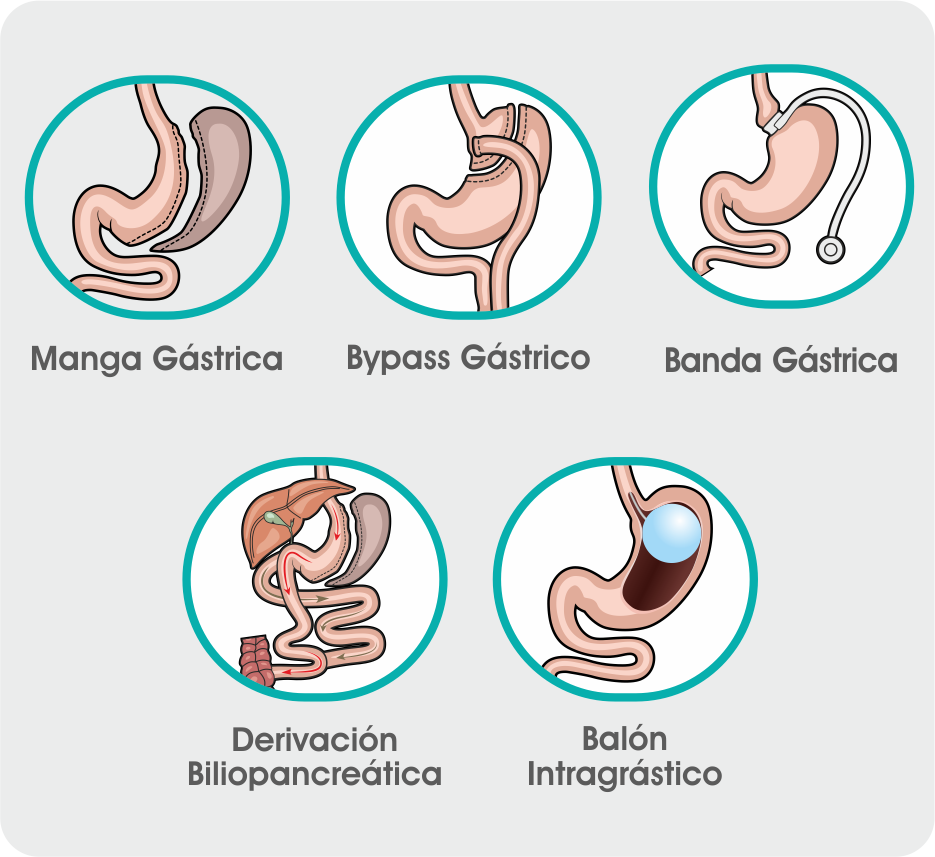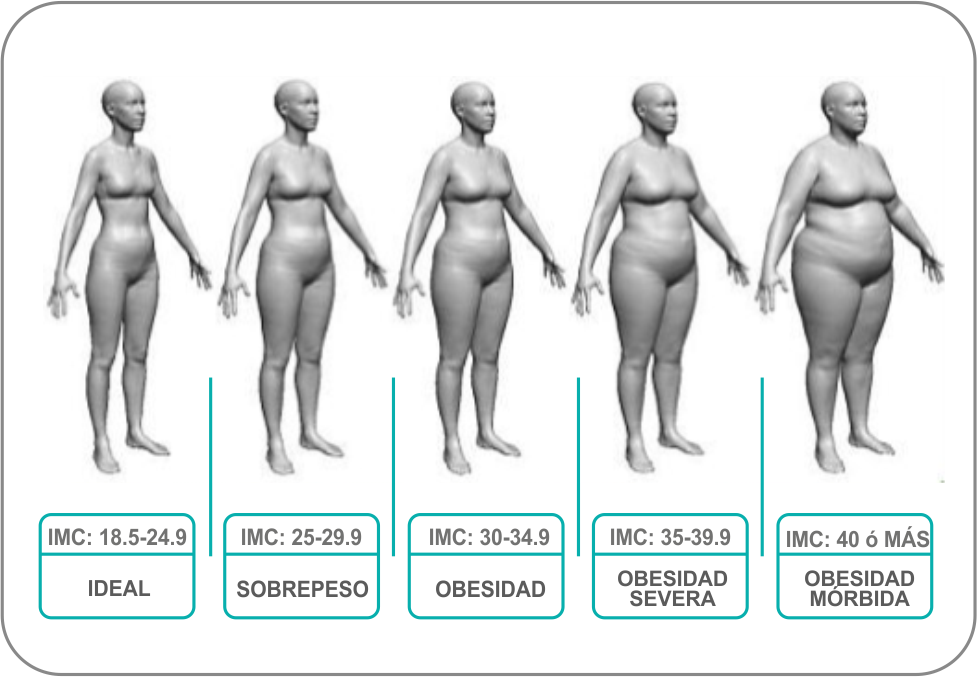×


- (+51) 01 411·4550 / (+51) 01 224·2224
- Av. Javier Prado Este 1066 Urb. Corpac - 15036 Perú
- Patient Portal
-

What is Obesity?
It is a chronic disease characterised by the accumulation of fatty tissue. It is considered a worldwide epidemic, since it not only brings esthetic problems, but also several diseases.
It affects almost all the organs and systems of our body, as well as social and occupational development, decreasing both life expectancy and quality of life.
Bariatric Surgery
It is one of the options for obesity treatment. Better results are obtained with surgical procedures, effectively reducing excess weight, contributing to the control of diseases associated with obesity.
The objective of this surgery is to limit the amount of food to be ingested and/or decrease the absorption. There are several procedures, the type of surgery to be performed depends on the degree of excess weight and the conditions of the person.
Types of bariatric surgery

Benefits of Bariatric Surgery
Generally speaking, surgical procedures allow the loss of about 80% of excess weight in 1 year. It is observed improvement of the associated medical diseases, such as:
Most patients control associated diseases even without medication.
Also, the benefits of surgery, the expectation of weight loss and improvement or solution of associated diseases are discussed in detail with patients individually.
Who should have this surgery?
It depends on the excess weight and the diseases associated with obesity. The body mass index (BMI), is a relationship between weight and height, which is used to classify obesity. Candidates for surgery are those who have:
The percentage of body fat must also be taken into account when making a decision.
Obesity Classification

For more information, please contact the General Surgery service.